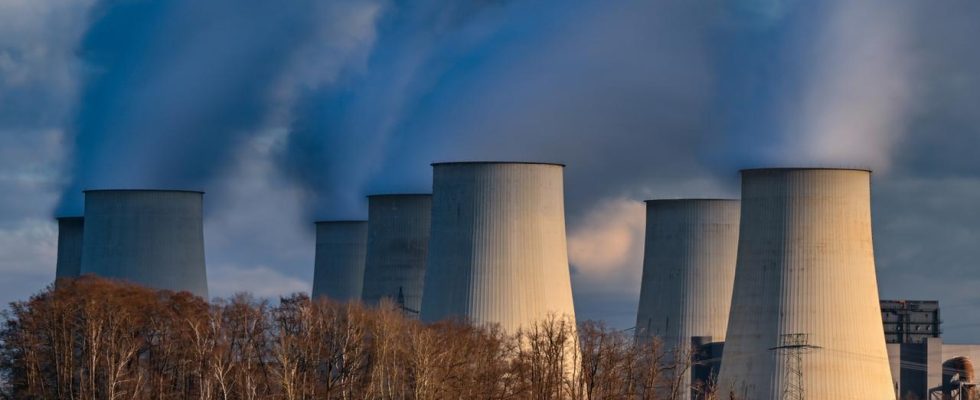In order to secure energy supplies, the federal government reactivated lignite-fired power plants last winter. Although a better supply situation is expected this year, the cabinet has now released the reserve again.
Brown coal-fired power plants can be brought back online to secure energy supplies next winter. The cabinet approved the release of the power plants from October to the end of March 2024, as the Ministry of Economic Affairs announced.
The temporary extension of the so-called supply reserve is a “precautionary hedging instrument”: It will be reactivated in order to save gas in electricity generation and thereby prevent gas supply bottlenecks in the coming heating season. This reserve contains lignite power plants from RWE in Niederaussem or Leag in Jänschwalde.
In the wake of the Russian war of aggression against Ukraine and the almost complete stop of gas deliveries from Russia, reserve lignite power plants with a total output of 1.9 gigawatts were reactivated last winter. According to the ministry, they are currently kept ready for future retrieval. However, as the Federal Network Agency announced at the end of September, it saw a significantly better starting position for gas supply than a year ago.
Government wants to offset increased CO2 emissions
However, lignite power plants emit significantly more CO2 than gas power plants. By the summer of 2024, the government wants to make proposals on how the increased emissions of greenhouse gases can be offset again. Last year, Economics and Climate Protection Minister Robert Habeck once again described the return of climate-damaging coal-fired power plants as bitter news with a view to climate protection – but it was inevitable because of the consequences of the Russian war of aggression on Ukraine.
The Ministry of Economic Affairs and Climate Protection now emphasized that the goal of completing the coal phase-out “ideally” in 2030 remains unaffected by the measure. The same applies to the climate goals. For the Rhenish mining area, the federal government and RWE had agreed to bring forward the coal phase-out by eight years to 2030. However, this has not yet been decided for the East German areas.

